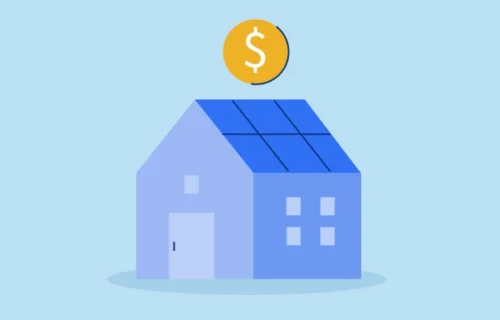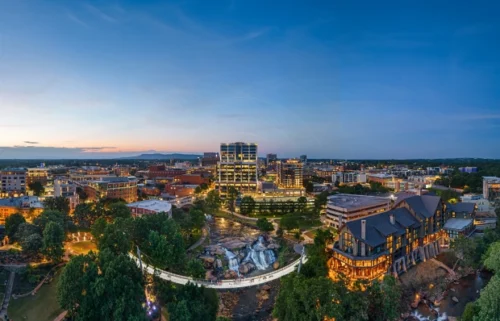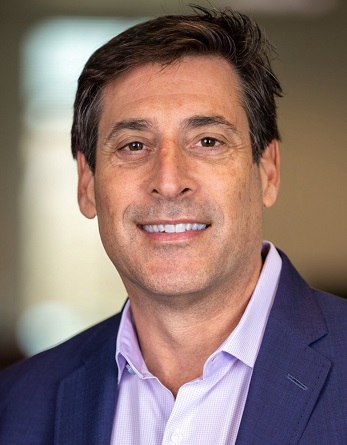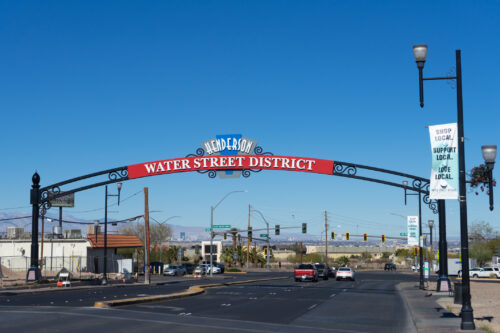
Connect with a Lima One expert today!
If you’d like to know more about this topic or see how it applies to your project, let’s talk.
How to Win Big With a Real Estate Investment Flywheel
Speaker 1 (Dalton)
Welcome to The Real Estate of things podcast. I'm your host Dalton Elliott. I'm joined today by Lincoln Edwards principal at houndstooth Capital Management, a firm based in Austin, Texas. In addition to real estate, Lincoln has a healthy background in the private equity space, having led a fund which acquired over 100 million in assets. He is also a Harvard Business alum. So the credentials are there. Lincoln, thank you so much for joining us.
Speaker 2 (Lincoln)
Hey, what's going on? Dalton, thanks for having me, man. For sure. So
Speaker 1
we have a lot of business to get to, but I have a completely selfish question to ask first. Okay, good. Awesome. Austin, Texas. Somehow I've been to Dallas a dozen times. I have never been to Austin. I'm going to be there for my first time in a month. What is the cannot miss? place? restaurant watering hole? what's the what's the wreck?
Speaker 2
Well, if you feel like waiting for four hours, you got to get some Franklin barbecue. That's the best barbecue place in the world. It is typically about a four hour away. If you don't feel like waiting for four hours, I'll send you down to Black's barbecue. It is called the second best barbecue, but significantly shorter way to maximize your time here.
Speaker 1
I like the time value proposition trade off there.
Speaker 2
So yes. People ask people ask the Franklin's is the best? The answer is yes. A better question. Is it? Is it worth the weight? And the answer to that is? I don't know. I think I think I think maybe not. Maybe you're better served to blacks.
Speaker 1
I like it. I like the approach. So thank you for the first official Austin recommendation. Now, I want to pick your brain for the next bit. So we mentioned the private equity background. You and I chatted about this a little bit. So talk to me how you moved from that industry over into real estate investing? How'd you get your start?
Speaker 2
Yeah, well, my you know, my very first venture into real estate was right out of college, I was doing the house hacking thing. I basically bought a house in Houston, Texas I was working in in oil and gas and I just rented out rooms to my buddies and that was in 2007 that's back before I went to business school and when I left to go to business school that was in late oh nine and I was just thrilled to get out of that house. I thought who I dodged the bullet I broke even on the thing and got my rent paid for a couple years and I didn't think that I would be back in real estate after that. I wasn't necessarily looking into it but came on with a real estate private equity shop here in Austin after school and started buying up commercial real estate and, you know, learned by doing it at least on the on the real estate side there. And you know, we bought up a bunch of property while I was there before I ventured out on my own and started houndstooth. So that's how I got into the world and real estate, you know, it keeps kind of pulling me back in. Yeah.
Speaker 1
You were describing to me your business model. And I kind of think of a flywheel. Right, whenever I think of your business model. You talked about how, and tell me a little bit about how this happened. Was this always the game plan? Was it the ABC game plan, but really, you have this great model of a wholesale business which feeds a flip business which feeds a media business? And then it's just this massive rinse and repeat cycle? For folks listening? If you hop on YouTube Austin flip stirs. That's what that's what the search for. Talk to me about how did that happen? Was it always the plan? Or did one thing lead to the next?
Speaker 2
Yeah, kind of one thing led to the next I started out just with my own capital, that I’ve made flipping houses and started small 123. And then, you know, I quickly figured out so much the time was going into the acquisition side, and you know, the marketing define properties, all that work would sort of wither on the vine once I shifted my focus to flip. So as we scaled up, you know, hired folks to help on the project management side of the house renovations. But, you know, I started thinking really, we need to meet a wholesale business to kind of keep the acquisition funnel going. So that we've got projects to, to flip when that capital becomes available through the sale or refinance or whatever. And then we also capitalize on those opportunities that we're creating and, and, you know, feed, feed some deals to other investors here, locally. So that's that was the first two kind of components of that flywheel you described which is, you know, wholesale, is the acquisition arm for the flip and it makes a little money on its own. The media component was man sort of stumbled into that I kind of went down the rabbit hole on social media. And this was three, four years ago and realize, you know, it wasn't just cat videos or whatever on YouTube, I was, I was so amazed people were building real businesses, because you read a headline that said such and such made, you know, millions of dollars on a YouTube channel, I could not figure that out. I went down the rabbit hole and I figured out man, there's really there's people doing, it's the Wild West out there, it's sort of a land grab for attention. So, you know, I thought, Man, I wonder who's doing HGTV on YouTube, there's got to be somebody claiming that. And it was it was a ghost town. So you know, my partner, Lauren and I who run through her on the channel together, we, we kind of brainstorm several, why not, why not us. And it was a little bit naive, because we didn't know exactly what we're doing. But we thought, at a minimum, you know, maybe we could get some free materials donated or whatever, and lower the cost basis for, for our projects. And we basically started filming our renovation projects and putting them up on YouTube. And it was sort of an experiment, and it really grew and grew and the audience, you know, came together and all of a sudden, we started getting lots of opportunities from the YouTube channel. And that really, is kind of how we back to this flywheel model where, you know, the wholesale feeds the flip business, the flip business really is producing the stories, the content for the media channel, you know, that's the story that we're telling is that the renovation project, but then the actual social media component, turns around and feeds our wholesale business, because now we're getting leads based on the YouTube videos, people that are selling their house, other investors that gets fed right back into the wholesale model. And, you know, like you said, it's kind of a flywheel that, that each component feeds the next.
Speaker 1
Yeah, that's interesting. So, three, four years ago, you started that and kind of, like you said, an early adopter. I feel like the landscape of real estate investors on YouTube three, four years ago, way less crowded than today, right today, I think it's a everybody in their brother type situation. how, you know, how would you go about it differently? If you were starting the media arm today versus four years ago, I feel like you'd have to really claw to have a different competitive advantage. And I feel like that's tough.
Speaker 2
Man, that's great questions, I would probably either not do it today. Or if I was gonna do it today, I would, I would start out on tik tok and not on YouTube. And a lot of there's just a lot more traction. It's kind of what YouTube was several years ago, where there's a more open landscape. Yeah, but that's where we started. And you know, the thing that I would do, again, that we consciously decided to do, which was to not be a real estate investing focus channel first, or at least not primarily focus on the investment in the financial piece, but rather to be entertainment first, and then have, you know, sort of layers of engagement with the folks who want to talk investing. And basically, the reason we did that is because we got in front of a much broader audience. YouTube likes us more, right? It could put us in front of people with a lot broader interest, not just people that are niching down into the nitty gritty, the numbers and details of the project so we can entertain anybody on the platform. And then for the people that want to engage with us further on, on, you know, actually doing business. They're there to but it's eyeballs that we might not have had the opportunity to be in front of in the first place. If we were niched down and I probably do that again, that's it's been a great strategy.
Speaker 1
Sounds like that. Sounds I haven't thought about it. But it sounds like the common sense. Maybe not the common sense, just the optimal approach, right? Like the chief piece in any media arm needs to have some entertainment factor. Then all of the rest can fall is that makes complete sense. I, I feel like an old man, I was talking with my wife, I think last night or the night before, I was like, I still have never been on tik tok. I'm 28 years old, I think on the inside. I'm like, 70 I just don't know what the kids are doing these days. But that's, uh, yeah, go to a platform that isn't as saturated as YouTube, which is kind of the UI and the video space.
Speaker 2
That's how all these platforms work. You know, for people that are interested in social media. That's really, the way to do is ride the wave of a new cresting platform, get in there early. And then you know, build an audience one place and you can kind of port it over and take it with you. I remember, tik tok used to be musically A few years ago, my niece brought it to family Christmas showed us all did a little dance. And we're like, Well, that was cute. We got bored of it in about, you know, 15 minutes. And then here years later, it's this whole thing against chases name to tick tock and it's the fastest growing social media platform. And that's how these things work is they start with this niche audience, you know, preteen girls dancing around or doing lip synching, whatever it is they do. But even if you go down the rabbit hole now on Tick tock, there's real estate investing, there's all the other niches that you would find on Instagram or YouTube or whatever, you know, but that real estate is there for the taking. And the audience building, you know, is much faster over there. But you know, to the uninitiated, yeah. It seems like what is it that you actually use this app for? How is it that I'm supposed to monetize Tick tock, and you've kind of got to be you got to be a little bit of a pioneer a little bit of a cowboy on some
Speaker 1
of these things. You're, you're a smart guy. So you may have pushed me over the edge to download tik tok and take a gander? dance on there. Don't think you've got to dance?
Speaker 1
If I do you'll be the first one to get a video of it, I promise. So let's talk about your core business. Right, the real estate investment arm of it? What does an average project look like? For you? Do you play in a relatively specific space or multifaceted?
Speaker 2
Um, yeah, I mean, we've got kind of a sweet spot of deals that are kind of your average fix and flip projects in the core Austin market. And that stuff that you're getting into for three to $500,000. And hopefully you're exiting, you know, six to $900,000 those numbers have bumped up here in the last year, which we can talk about. But you know, we've, we've strayed outside of that range up to the sort of what I call the you know, the lower end of the luxury market. So you know, the one to two $3 million dollar price point. And we've dabbled a little bit in some of these tertiary markets around Austin, that seemed a lot of growth. And you know, what the lower price points a little bit more accessible. And the lowest price investment we made. We bought a we bought a house for $5,000 in Brownwood, Texas, which is out in West Texas, kind of where I grew up. And we literally, I only reason I bought that was specifically for the YouTube channel. And I thought that you can't pass up the chance to, you know, clickbait people with a $5,000 house. And sure enough, it's our biggest watch video, it really has nothing to do with our actual business model. It wasn't much of a moneymaker. So it was a fine little project, but it's maybe worth $120,000 now that we spent 80 or 90 on it or whatever. But man talk about a lead gen funnel for all this other stuff. So, bear.
Speaker 1
So you mentioned you've gotten into I've done some projects in the one to $3 million price point, walk me through the differences from a real estate investor standpoint of, you know, call it workforce housing, average housing in an area versus a project that's in the kind of low few millions, what are the differences in planning and execution? Do you see one is much more materially riskier than another? A lot of questions there. kind of walk me through.
Speaker 2
Yeah, it's, it's, it's a balancing act to be able to kind of span those price points, because you can't always use necessarily the same cruise the same material, you got to be a lot more meticulous, at least in our market, because your buyer pool is much thinner for the luxury properties and much more, you know, picky much more discerning, you know, so any little imperfections or certainly if the property has any sort of, you know, big, big things detracting from a busy road or if it backs up to, you know, some commercial or whatever it is, you know, those can be real deal killers, whereas, you know, in the, in the labor force, you know, you can overcome some of that with maybe a you know, 10% discount or whatever. So, you really, really got to do quite a bit more planning, and, you know, for flips in particular the best ones in our market for hitting that price point. Really in the older neighborhoods, you know, 1930s and 40s build that or, you know, infill neighborhoods where it's sort of people that want to be near the city, but they want to luxury property. And they also want a little bit of that kind of vintage feel those do the best. Otherwise, it's a lot of new bills, which is replacement, we haven't played it as much, but now you're talking, you know, kind of big mammoth 3000 square foot and up, you know, modern construction, which is, you know, a different market altogether.
Speaker 1
Yeah, have you done any projects like that or not getting into it?
Speaker 2
You know, we haven't, at the moment we've done, we've done a few projects, where we, we got plans and permits on a lot for something like that. And then if sold that off to other developers that specialize in the new construction. And, you know, frankly, with now kind of with our business model, we're, we're using social media to drive the whole rest of it. And it's, at least I haven't gotten my mind around a compelling way to sort of show before and after on a new build in a way that that is entertaining to watch. And that sounds sort of like a, you know, weird tail wagging the dog thing on your business model. You know, but it's really true.
Speaker 1
Yeah, that makes complete sense. So you kind of already started dropping some Hansel and Gretel morsels on the Austin market. So let's chat a bit about it. I think over the last year, a year and a half, probably new market outside of you probably have New York, San Francisco and Austin, Texas, being the three most talked about real estate markets, New York and San Francisco. You know, for different reasons than Austin. Right? Austin has been strapped to a rocket ship and set straight up to the moon. I saw a stat month or so ago that said, From May 2020 to may 21. appreciation, the Austin market average 36% over a 12 month span. absolutely ridiculous numbers. So let me start off with this question. How much of that? And it could be awesome. How much of that? Let's call it 36%. appreciation is going to stick? Do you think that whenever things calm down and normalized, it's just gonna plateau where it stops? Or do you think there's gonna be a material pullback?
Speaker 2
Well, you know, a lot of that hype has been driven by our YouTube channel directly, you know,
Speaker 1
it's every everybody who owns real property in Austin needs to start paying, you
Speaker 2
know, no, you know, I, I definitely, there's no way that is sustainable, that that array on a long term basis, right. I mean, like you say, it's absolutely insane. And, you know, you quoted the made amazing numbers, but this spring from January one, through the end of May, was the most insane real estate market I've ever experienced, you know, houses, getting 2050 offers 100 200 300 over asking price, and, you know, buyers that just, you know, submitting dozens of offers and couldn't get one. And that that behavior that market has already cool. So you're not, you're not seeing 20 offers on a house. There's still super low days on market. But, you know, I think that was a confluence of kind of the economy opening back up, you know, it becoming clear that, you know, the world wasn't ending, printing money like crazy. And, you know, there's at the exact same moment, all that's happening now, there's demand for, you know, premium real estate people were spending more time there and, you know, people moving from other markets, like you mentioned, San Francisco and New York into Texas. And I think that was the perfect storm for that moment. But going forward, I don't I certainly don't see prices taking a dip in Austin. I'll say that because the demand is still so outstripped by the supply. You know, you can't help but see that that market continue to appreciate. Now it could be wrong there but it just doesn't seem to be letting up. And it seems like every single day there's a new announced this morning. There's an announcement by a thinking Samsung $17 billion investment out in Taylor which is a sort of a suburb outside of town. And that was like I said, that was just the one this morning. It seems like it's a never-ending stream of corporate announcements, folks moving here. And yeah, I think for who knows how long it seemed like maybe Austin was like, you know, the best kept secret, and in the country, and these folks from the coasts have really discovered it, embrace it. And, you know, I think the whole pandemic and, you know, all the restrictions people have been experiencing and other markets, it's really, you know, highlighted some of the drawbacks to other markets and, you know, accentuated, you know, a lot of what Texas and Austin has to offer specifically. And, you know, I think, I think the genies out of the bottle in terms of, you know, the demographic shifts in terms of the people moving around the country and the demand for the types of housing and the types of cities that they want to live in. And I think that bodes well for Austin in the long term.
Speaker 1
Yeah. And Joe Rogan moved to Austin from California. So it seems like seems like that was the tipping point, Joe move there. And then everybody in California followed suit. So you talked about tertiary markets. Right. So let's take Austin off the table for a minute. Austin proper. What cities and towns outside of Austin, are you looking at? Or would you recommend people to look at from an investment standpoint?
Speaker 2
Yeah, I'm super bullish on the market, south of Austin, all the way to San Antonio. And, and west of Austin. I think Austin as if you know, the market. Well, I mean, it's sprawls to the north, but going down south towards San Antonio, you've got the I 35 corridor. the demographics of the state in general are you know, continue to grow over the next 1020 years. And you know, I think that strip between these two major metros has no choice but to sort of fuse, if you know the Dallas Fort Worth market. You know, the places in between there like Arlington or Irving or Frisco, it's sort of the same effect. It's kind of fused into one major Metropolis and I think you're gonna see a continued push for that south of Boston, specifically. I like markets that have that are in that path that also have some character and some sort of tourist vibe. I think they make great investments because, you know, you can hold them you could turn them into Airbnb. So, you know, I specifically like the New Braunfels market, which is on I 35, between here and San Antonio on a property down there. Wimberley is a smaller town sort of on that on that same path. That's very cute, artistic, you've got a river running through a lot of tourist action. And then what's the town Dripping Springs, it's been a bedroom community to Austin that's been growing like crazy. You've got a million wineries and breweries and distilleries out there and deep Betty vodka is out there. Tito's handmade vodka is out there and a whole host of you know, breweries and spots that are kind of a gathering point for families to come hang out. And, you know, it's kind of developing a tourist market out there. It's just a hot market. That was a sleepy little town 20 years ago. And, you know, I'm really bullish on Dripping Springs as well.
Speaker 1
I shout out to Tito's vodka, we need to get a sponsorship for your YouTube channel on this podcast and bleep them out until they send us a check if you don't.
Speaker 1
Sure they. Good idea. Smart businessman. That's the that's the HBS coming out. So short term rentals. You brought that up? How is the short-term rental market in Austin? I imagine it has to be kind of as we've gotten back to travel and stuff opening up this summer. Explosive probably just like every other part of the Austin market. Is that the case? Yeah, so
Speaker 2
you know, it's funny, you know, Austin is Austin is sort of a Blue Island or blue oasis in the middle of a red state. And so some of the policies you see in California, they get replicated in Austin. And that can manifest in some ways that make it hard to develop, you know, zoning laws need an update here in in town. And another manifestation of that is restrictions on short term rentals that the city's tried to place on property owners. So there it is a booming market for those who have a permit. I'm not a lawyer, but I can refer you to There was a court of appeals case that were some short-term rental owners sued the city, Boston and my interpretation. Again, I'm not a lawyer, I've read the court opinion and basically, you know, struck down the city of Austin, but they still continue to limit the licensing of short term rentals in this market, which in my opinion, is a direct violation of that court order. But don't tell them I said that refer that out to your lawyer because I think it's going to come to a head because no unnecessary regulation. And I think that that market is, you know, I think it's, it would absolutely explode it'd be a game changer for property owners in the city, you know, to keep properties from turning over as frequently as they do give people another option to monetize a property or get a little bit of cash flow you're only an option at the moment is you know, long term rental for most properties that that are, you know, single family homes that you can get a license on those in you know, the denial dynamics of the rental market, such as they are in Austin, it's really hard if you're buying new today, to be able to charge enough rent to cover a mortgage with you know, without just a huge down payment on it. And, you know, I think that has a lot of negative repercussions for renters in the city, you know, they're on the one hand, you know, you could say they're getting a good deal on rent, but then I think it sort of keeps houses out of the rental pool that might otherwise be in it. So I'd love to see more short-term rentals. But, you know, when you go outside of the confines of Austin, that's when you can start getting into these short-term real plays in some of these other markets that I mentioned when really Dripping Springs, New Braunfels and in St. Marcus, and those are great markets, you know, our, you know, arguably is good or in some cases better than the Austin market. Cap tax it
Speaker 1
take the money off the top, let short term rentals fly.
Speaker 2
Yeah, you think it'd be a great it'd be a great source of tax revenue for the city, there's a lot that we could do with it, I think it'd be a boon and you know, it's really at odds with you know, what, what we're trying to do as a city you know, we've invested in things like a Formula One race track, you know, we've got the Austin City Limits Music Festival South by Southwest, we've got the University of Texas football, attracting a lot of people and we built a big shiny Convention Center downtown. You know, we're Austin's should be a welcoming city we should be welcoming guests and you know, we should be able to have flexible inventory to meet that demand and who better to benefit you know from you know, tourism and visitors in our city then the homeowners in in Austin, Texas, and, you know, people that are willing to invest in in real estate here and open up their doors to visitors you know, I'd love to see more
Speaker 1
than that common sense sounded to me. So what did we leave on the table? Lincoln? What here's there's one more quick question. Is there anything trend or habit wise on real estate investors that you're seeing crop up? That you just do not agree with you don't think it should be going on any practices anything?
Speaker 2
Um, well, uh, yeah, I would say a couple things you know, um, you know, our channel on YouTube being focused on fixing flips You know, a lot of times we'll get people saying oh no, you should burn method or refinance or Airbnb and you know, in you know, the flips your taxes ordinary income it's sort of this debate I don't really see it as a debate between which method is better I think everybody should have sort of a portfolio hold some flips on for income so that's something that we run up against that doesn't really make sense we're not just our only flip you know, we own rentals we own Airbnb. Um, you know, I'm bullish on the Airbnb thing since we were talking about that I'm trying to add more of those to the portfolio um, you know, you're seeing these folks now that are doing the sort of the rental arbitrage written out real estate and then we turn around to Airbnb yet. And that's a, I don't know, I don't want to play I don't agree with that. That seems like a tricky game. And you know, I think, look for somebody starting out, you know, if you can pull that off, if you can swing and do it professionally, and manage property might be a good way. I think long term it doesn't, you know, you don't get any of those, you know, the benefits of owning the real estate that you know, we've come to You know, I love that, you know, the appreciation and the appreciation and, you know, getting long term fixed interest rate debt and, and all that good stuff. So I hope, you know I hope folks that are getting into the market that way it's, you know, people starting out that can transition into traditional ownership, but you know, gotta respect
Speaker 1
for sure. I mean, Far be it for me to cast stones is something new and novel that I would have probably never thought of, but I agree with you, it feels like in that strategy, you could be ripping out the core foundational known pieces of real estate investing kind of that 101. And that's just TBD on how that ship sales.
Speaker 2
You know, I think that's really, you know, I think that's also a limited play, because, you know, the property owners that you're renting from, eventually you're going to realize, hey, these people are, you know, they're providing a service effectively capturing more of that upside than I'm otherwise getting. So I'm going to lease to somebody that's going to turn around why not just you know, hire my own management company. Let me run as an Airbnb and i think i think it's probably more old school owners that are saying yeah, sure, I can't be bothered to mess with this, this new short term rental thing but if somebody else can figure it out, and they want to just pay me my fixed rent every month, go for it, but I think they're gonna get wise to that more and more just going to start hiring that out directly or, or you know, diversify the rental mix of something like a multifamily. You know, bargain building where, you know, you got some long terms. Maybe you got some short terms in there to offset. We'll see.
Speaker 1
sounds right. A Lincoln Edwards principal houndstooth Capital Management, go check out the YouTube page. Austin Flipsters; is that right?
Speaker 2
That's right. Yeah. You can follow our journey on Instagram, as well have Austin flip stirs on there, if you want to follow along in real time, and all the projects we got going on here. And yeah, check us out.
Speaker 1
Beautiful. Hey, Lincoln, thank you so much for joining.
Speaker 2
Thanks. Thanks a lot for having me. For sure.
*Transcript automatically generated from interview.
Subscribe for More Insights
Get the latest industry news & Lima One updates.









